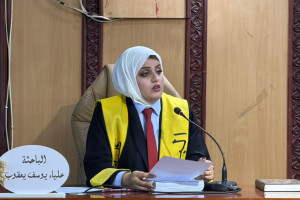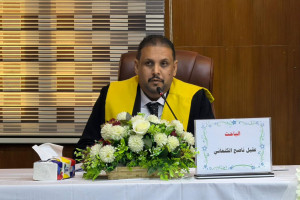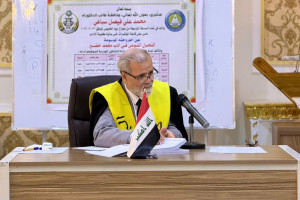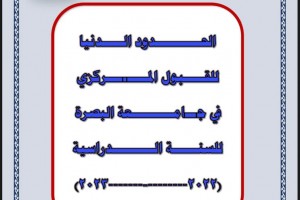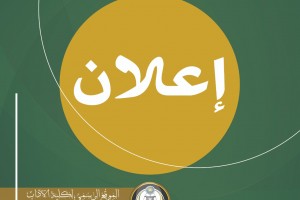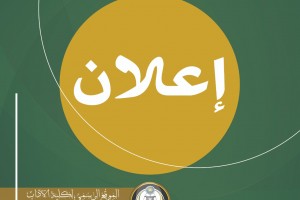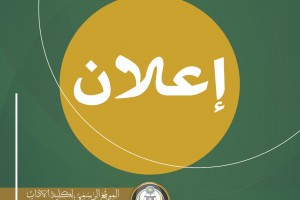
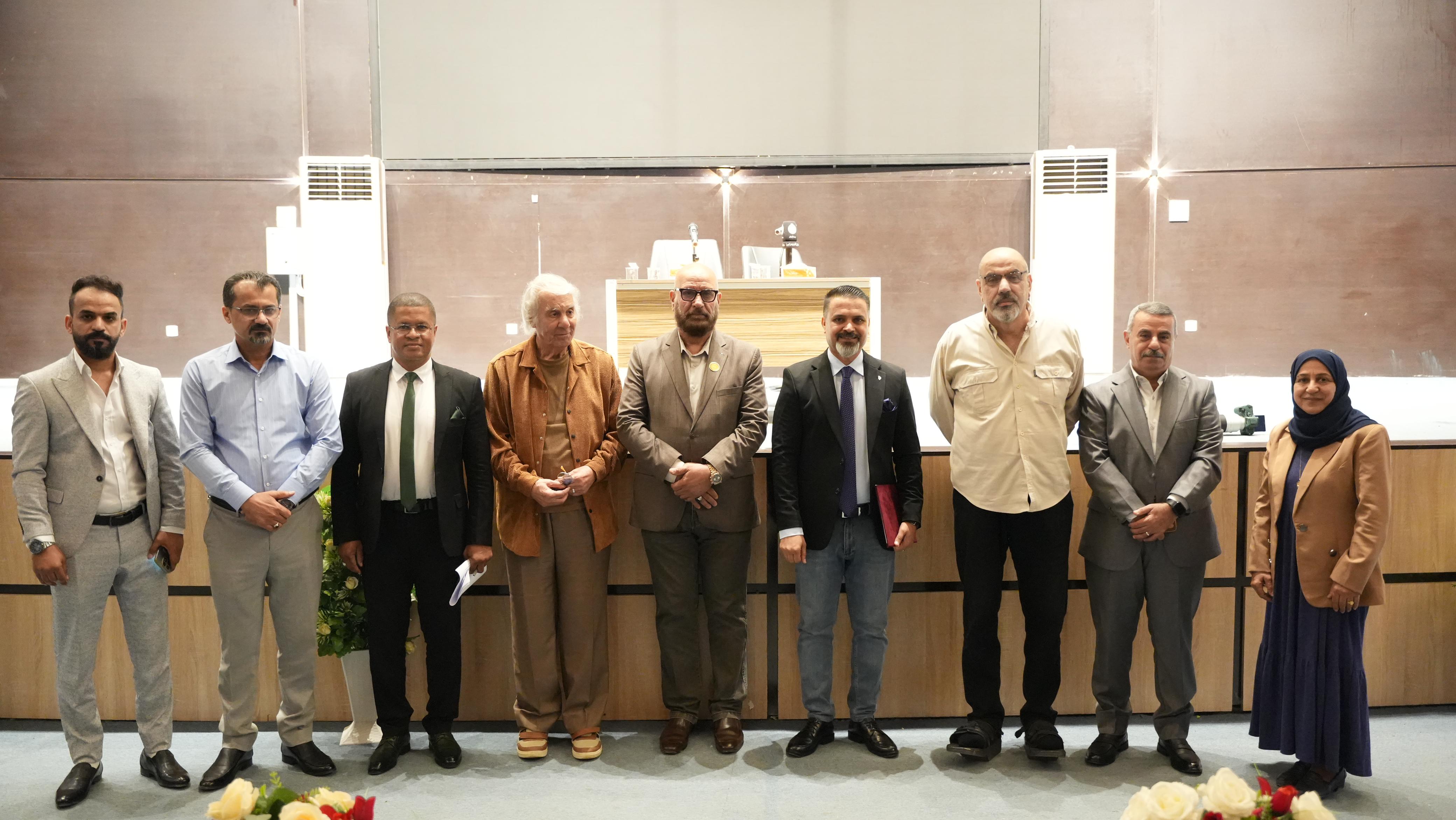
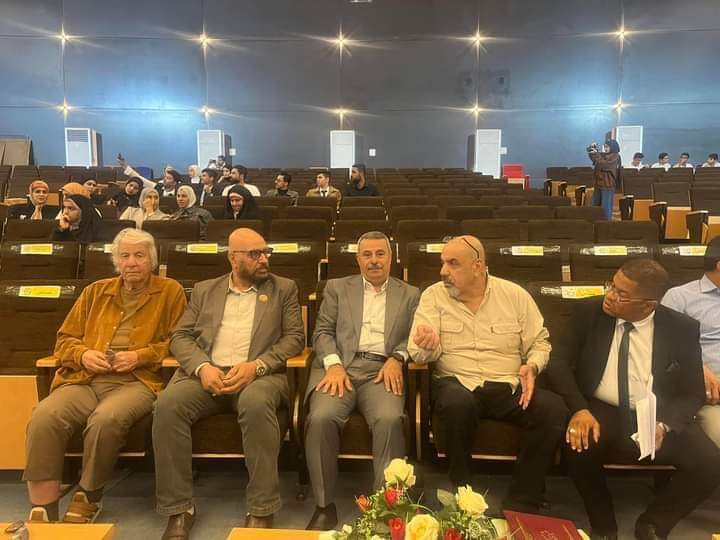
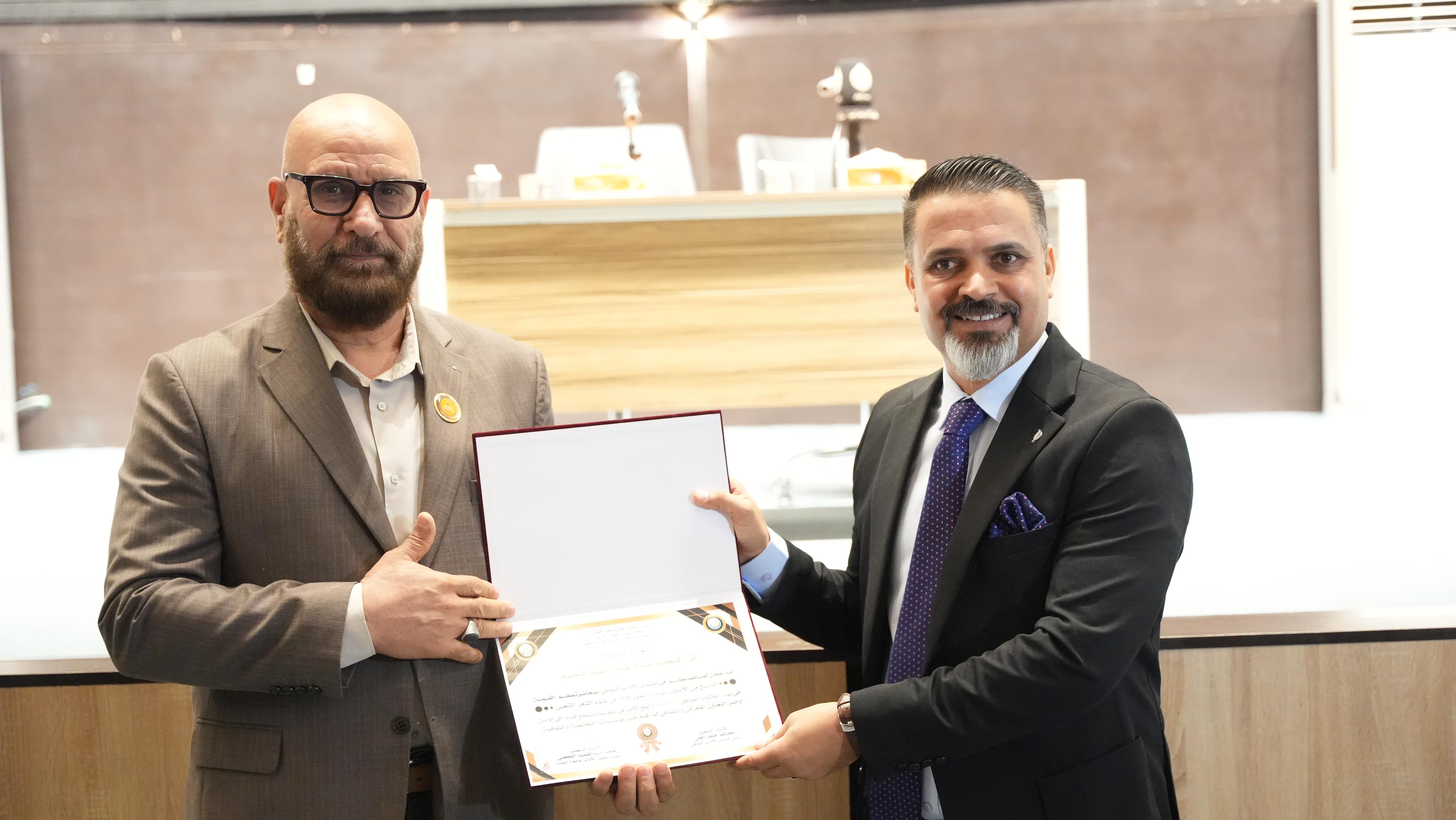
As part of its series of cultural sessions, the Cultural Literature Forum held its second session entitled “The July 14 Revolution in Light of Popular Poetry,” in which the lecture was given by Dr. Mushtaq Eidan Obaid and introduced by Professor Dr. Nazim Rasham Al-Imara on Tuesday, 11/19/2024.
The lecture stated that despite the relative accumulation achieved by writing the history of Iraq in recent decades, many aspects of its contemporary history are still shrouded in mystery, and a number of issues and events still need more research and study, whether it is related to exploring obscure events that have not received attention; Given the focus of academic research on known events, some of which have been researched and studied, this is not a deficiency in the level of advanced studies, but rather due to a problem related to the authority of the document, the dominance of the textual tendency, and the reliance primarily on official documents written by the state, and the lack of great importance given to the history of ordinary people far from power, and the role they can play in illuminating shadow areas, and in presenting a reasonable narrative about people’s reality, after the “positivist school” established a popular belief to this day, which is to sanctify “the written and documented,” and focused on events and the history of great people, relying on official documents and correspondence, so that the one-sided vision established by official history and its makers remains controlled by the whims of the ruling class forces, their interests, and their relationships.
In contrast to that school is the British school: “History from Below”, which arose as a reaction to the rigid and closed constants of the positivist trend, which excluded the common people and isolated them in the dungeons of corrupt memory, by relying on new types of sources, such as oral history and material heritage, and shedding light on them from new angles, with the type of questions raised and the type of issues addressed. The history of the nation, represented by the history of generals and famous figures, is no longer what interests historians. Rather, “new history” has brought in all the absent and marginalized through studying what was “abandoned” from the sources and the absent from the social classes. It has given scientific value to fields that were unknown or neglected, and made them part of history, if not its engine. People make history, but they do not feel it, as is the position of the peasants and the simpletons regarding the revolution of July 14, 1958, which gave it continuity and popular momentum, but historians did not pay sufficient attention to studying their social role. And the politician, although they constituted the majority of the population of Iraq during that period, and this lecture attempted to analyze the historical relationship between the peasants and the revolution, and the reasons for their alignment with it, relying on what they sang of popular poetry, to express that alignment, to fill the gaps in traditional history.
The prevailing historical narrative describes these groups as isolated from political life and other aspects of society, yet we see that these groups played an important role in the forces that prevailed in the revolution

